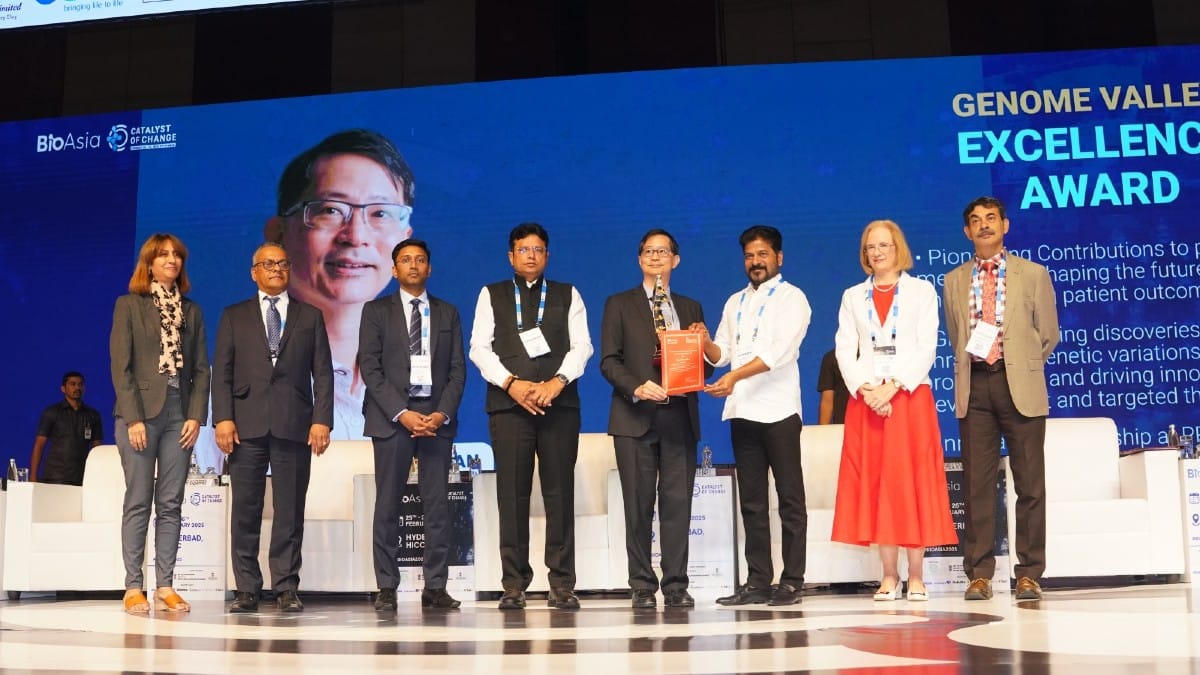Hyderabad: As a biochemistry student at Harvard University, Singaporean scientist Patrick Tan was bothered by the lack of diversity in medical research. All the data sets were based on genomic profiles of only Europeans and Americans, despite Asians and Africans making up a larger portion of the world’s population. Now, as the executive director of the Genome Institute of Singapore (GIS), he’s rectifying the omission.
Tan has created a dedicated genetic biobank for Asians, and his work will soon become a reality, changing the face of medicine in Singapore—and the rest of Asia. In 2021, he completed the world’s largest sequencing analysis of multi-ethnic Asian populations, and by 2027, his project in Singapore will create Asia’s first functional precision medicine system with the potential to fine-tune treatments and drug responses for Asians.
“The idea is to create a genetic map of Asian populations that would allow us to measure precisely the genetic contribution to any disease, and also combine it with other sources of data within a data-driven healthcare system,” Tan told ThePrint.
The Singaporean scientist was awarded the Genome Valley Excellence Award at BioAsia 2025 in February, Asia’s largest annual global biotechnology and life sciences forum organised by the government of Telangana.

The database he has built will provide valuable insights into preventing diseases, help with early diagnosis, and ensure that therapies are tailored to maximise clinical benefits and minimise side effects. “Not just for Singapore, this database will benefit the entire Asian population,” Tan said.
The PRECISE project
Singapore’s Precision Health Research (PRECISE) project was started to shift the country’s focus from just treating diseases to understanding and preventing health conditions. The project is planned in three phases.
In the first phase—completed between 2017 and 2021—10,000 genomes were sequenced, already making it the largest multi-ethnic Asian database to date. Along with just collecting genomic data of people, teams worked on identifying clinical use cases, carried out economic modelling and engaged potential industry partners for data management.
In the second phase, completed last year, populations under certain disease cohorts, like heart disease or diabetes, will be categorised and marked for preventive health checks. Under this phase, Singapore also conducted a pilot project in clinics to train the precision medicine workforce. The third and the final phase is pending.
The entire project will be completed by 2027, when another 1,100,000 genomes will be sequenced, making it a holistic health database for the country.
“PRECISE was formed to act as a central agency to drive data-driven healthcare in Singapore,” Tan said.
Precision medicine—also known as personalised medicine—has gained focus across the world for its disease prevention approach. It considers a person’s lifestyle, genes, environment and other factors that would determine the way their treatment plan would be designed. This class of medicine also focuses on creating personalised preventive plans for populations. “This level of personalisation can only happen when we have exhaustive data of health profiles available,” Tan said.
Precision medicine in India
India is not far behind in building a genetic biobank. However, experts say that these projects are currently happening in silos. They have to be integrated into a centralised system before they can finally benefit the Indian population.
In August last year, the Centre approved the new BioE3 policy (Biotechnology for Economy, Environment and Employment), intending to foster high-performance biomanufacturing in the country to enable India to lead the global bio-revolution.
The policy also aims to focus on precision therapeutics in the coming years. This policy will likely bring all the work happening across research institutes to create an Indian genetic biobank under one regulated roof.
Senior officials from the Department of Biotechnology (DBT) said that the government’s recent ‘Genome India’ project, which finished sequencing over 10,000 genomes from around 100 ethnic groups, will help researchers identify patterns of rare diseases. The ‘Phenome India’ project is also based on 10,000 genomic samples to create a prediction model for cardio-metabolic diseases.
“Multiple projects currently underway will eventually shape precision medicine in India. India’s genetic biobank will also be unique because of our varied population,” a senior DBT official told ThePrint.
But some key issues will need to be fixed before this dream is realised.
A 2021 study analysing the uses and challenges of precision medicine in the country highlighted how anonymisation of data and its security, among other things, would be a big challenge for India in the coming years.
“Numerous challenges still exist to the future of precision medicine, such as the cost involved, ethics, security of the big data, the merger of various platforms to integrate data, and the availability of trained manpower to manage the data and algorithms,” the study read.
(Edited by Mannat Chugh)
Also Read: Meet V Narayanan, rocket scientist set to become 11th ISRO chairman & lead Gaganyaan, Chandrayaan-4






